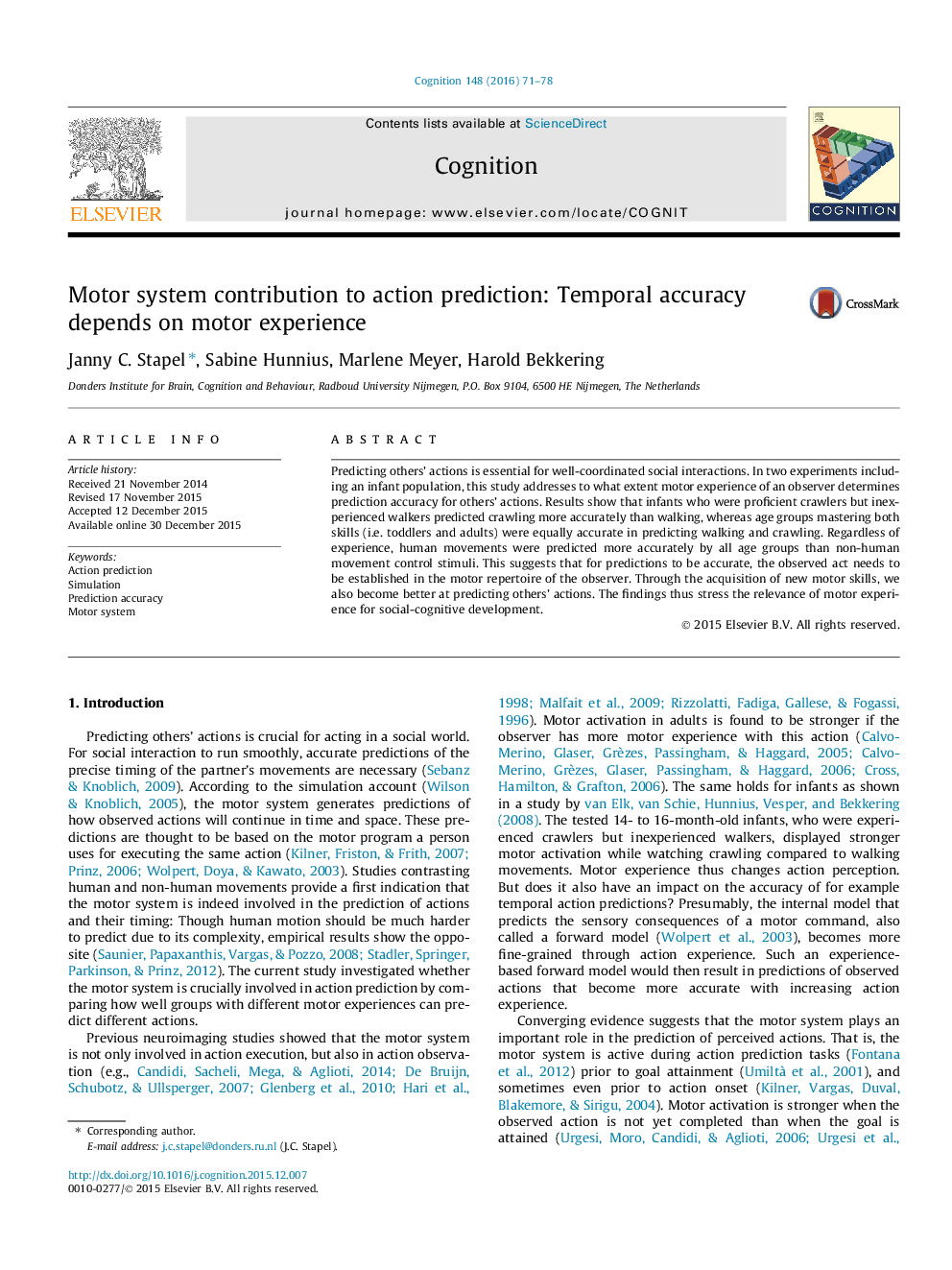| Article ID | Journal | Published Year | Pages | File Type |
|---|---|---|---|---|
| 926329 | Cognition | 2016 | 8 Pages |
Predicting others’ actions is essential for well-coordinated social interactions. In two experiments including an infant population, this study addresses to what extent motor experience of an observer determines prediction accuracy for others’ actions. Results show that infants who were proficient crawlers but inexperienced walkers predicted crawling more accurately than walking, whereas age groups mastering both skills (i.e. toddlers and adults) were equally accurate in predicting walking and crawling. Regardless of experience, human movements were predicted more accurately by all age groups than non-human movement control stimuli. This suggests that for predictions to be accurate, the observed act needs to be established in the motor repertoire of the observer. Through the acquisition of new motor skills, we also become better at predicting others’ actions. The findings thus stress the relevance of motor experience for social-cognitive development.
